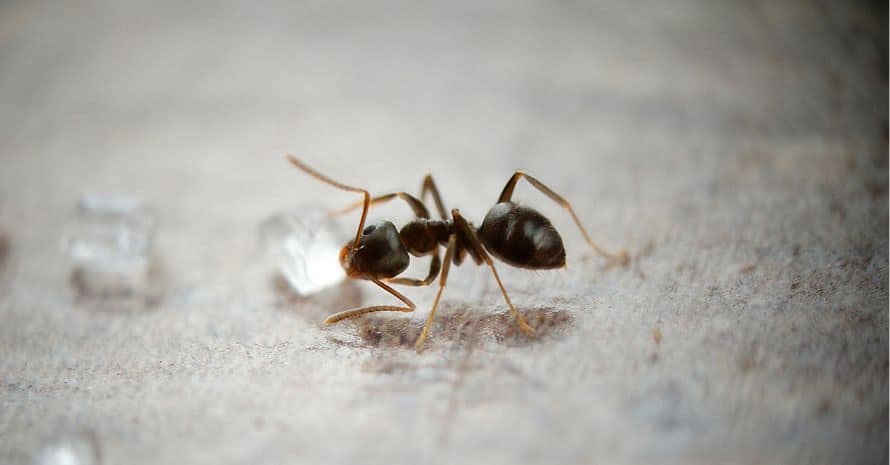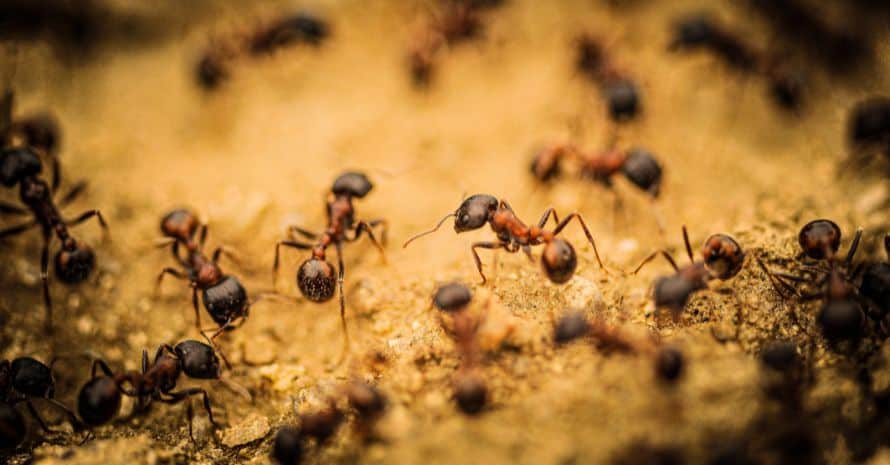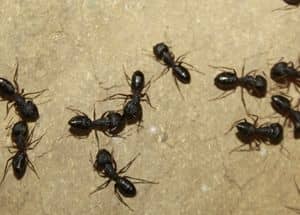Do ants sleep? They do, but not their sleep is more like a nap. The type and length of their sleep vary depending on the location and type of work they do. Ants are frequently cited as prime examples of diligent and effective workers. If you watch ants at different times of the day or even at night, you might notice that they are constantly active, so you might encounter these little guests in your house at any time. The reason is that ants take incredibly brief power naps at irregular intervals, which means that some ants are always awake when others are dozing off.
[wpsm_titlebox title=”Briefly About Ants’ Rest” style=”main”]
There are more than 12,000 different species of ants, and each of them has a different sleeping and activity pattern. You might be curious, when do ants sleep? Ants don’t have a day or night cycle, thus they can be up and active at any time. Unfortunately, they can enter your home at any time of day or night because of this. Below, you will find information about these creatures you might be interested to know.
[/wpsm_titlebox]

Do ants sleep?
Yes, though their sleeping habits resemble a power nap. What about how long do ants sleep? Throughout the day, ants sleep around 90 to 250 times. Each sleep episode lasts about one to six minutes. In other words, ants are super-powerful nappers. To summarize these sleep periods, they sleep anywhere between 4 and over 9 hours per day.
How do ants sleep?
They simply pause and take a break if they want to fall asleep. Ants sleep by remaining calm and retracting their antennae. Since they don’t curl up or close their eyes, it might be challenging to identify sleeping ants. The primary hint is that an ant doesn’t move. Ants that have just awoken from sleep can be lethargic. It’s interesting to note that ants seem to be capable of multiple kinds of sleep, with both deeper and shallower sleep occurring.
Where do ants sleep?
Even though ants don’t seem to sleep at specific times, they prefer to pick locations where they feel safe from threats. Ants never sleep where they can feel some danger. Within the colony, they sleep in compact groupings known as clusters where they are most protected by their nestmates.
However, if they are in a concealed area, like the underside of a leaf, they can decide to sleep outside. Since it’s uncommon to see dozing ants in the open, it’s safe to assume that they hardly ever snooze outside the nest or other protected places.
[su_youtube url=”https://www.youtube.com/watch?v=bKBsgYWjWNk”]
Do sleep cycles of ant species differ?
The average number of daily naps taken by fire ant workers is 253, with each one lasting one minute, according to research on the sleep cycles of ants. It is roughly 4.8 hours every day. Their queens, however, experience an average of 92 sleep sessions daily. Queen ants also sleep for a little longer, about six minutes each. This adds up to almost 9.4 hours per day of sleep, which is nearly twice as long as worker ants.
Why don’t ants sleep the same amount of time? The social hierarchy of the ant colony is reflected in these variations in total sleep time and sleep interval length. For instance, since they need to be alert and active, workers must sleep more frequently. Remember that the majority of the work required to maintain the colony is done by these workers. Additionally, they maintain the nests by keeping them tidy and protecting them from intruders, searching for food to feed the queen and her offspring.
Ants don’t sleep all at the same time or for long periods of time at once. Their bedtime schedule is set up so that 80% of the colony is constantly awake.
The advantage of not everyone sleeping at once is that the colony always has workers, ready to bring in food or protect the nest. However, it has been seen that ant workers take advantage of calm times to sleep more. Since certain ant species are nocturnal while others are active during the day, these calm periods differ between species.
Queens, on the other hand, enjoy the luxury of taking longer naps because they are exempt from laborious duties. Worker ants take care of their queens because they need to concentrate only on reproducing.

FAQ About Ants Sleep
Now you know the answer to the question “Do ants ever sleep?”. Here you can find short answers to some other interesting inquiries.
How do you know if an ant is asleep?
Ants sleep by tucking their antennae in and staying motionless. It might be challenging to find a sleeping ant because they don’t close their eyes or roll up into a ball. If you notice that an ant isn’t moving, it will be the key indicator.
Do ants sleep at night or day?
Different ant species can only be active during the day, throughout the evening, or at night. Due to the briefness and regularity of their power naps, nocturnal and diurnally active species will both sleep during the day and at night.
Where do ants sleep?
Ants can choose to rest in areas where they feel safe. In their nest, where numerous other ants guard them, they relax the best. If they are in a concealed location, they might decide to spend the night outside the nest.
Mysterious Ants
Even though researchers have made great efforts to understand ant sleep, most of it still remains a mystery. However, it is clear that ants require sleep for their colony to survive. Their queens require a lot of sleep in order to reproduce. Despite having the most labor to accomplish, worker ants regrettably do not have the luxury of sleep.
What else would you like to know about ants? Tell me in the comments section below.

